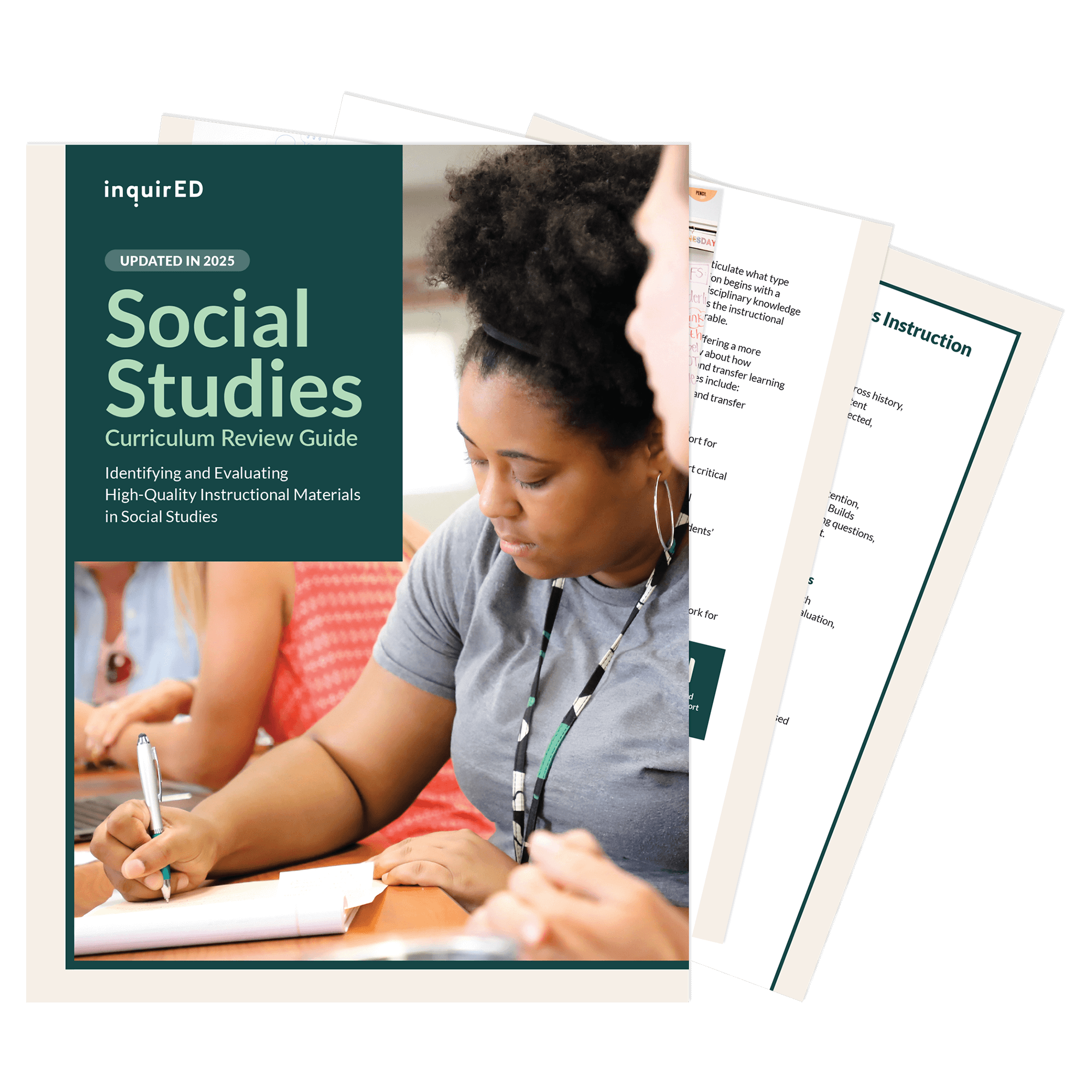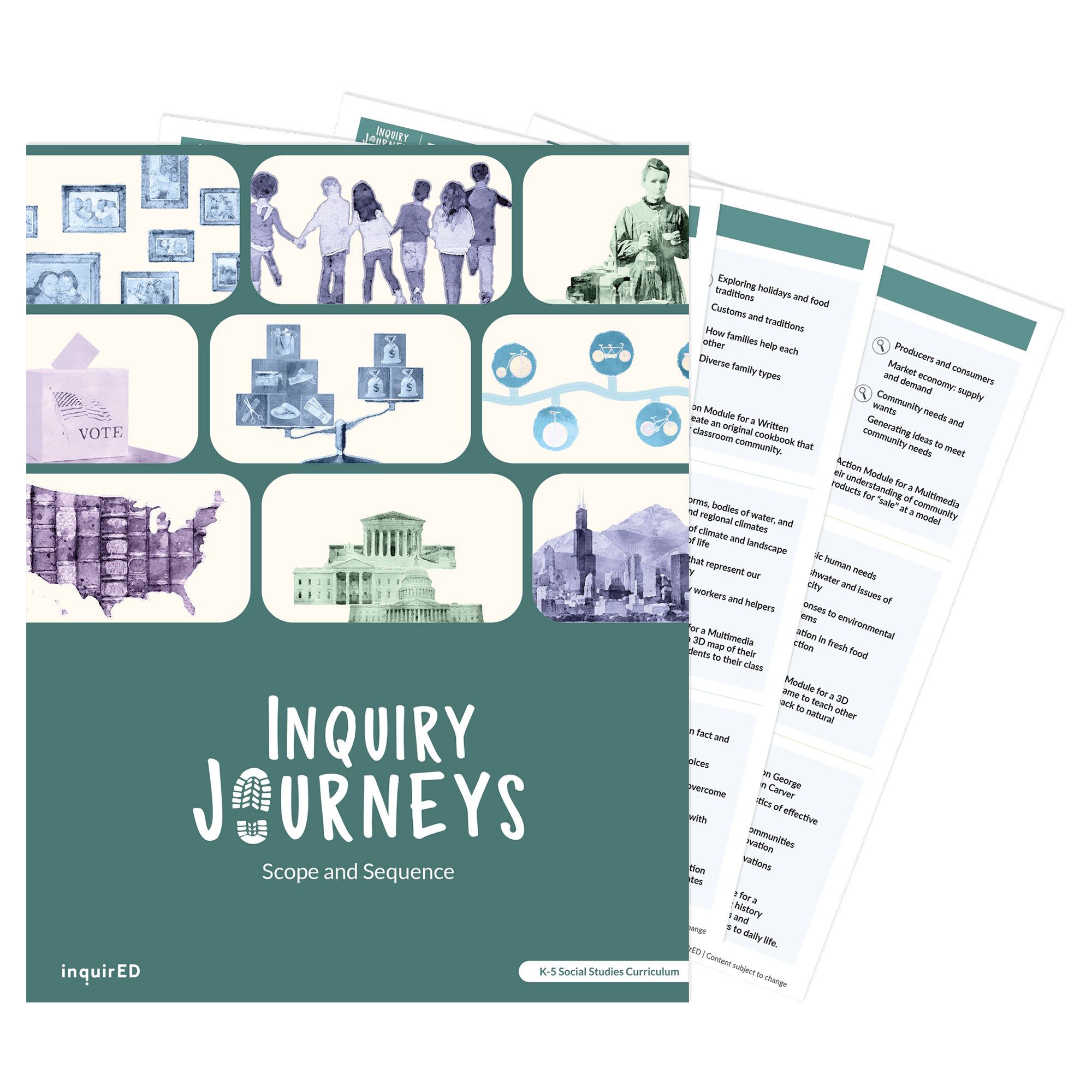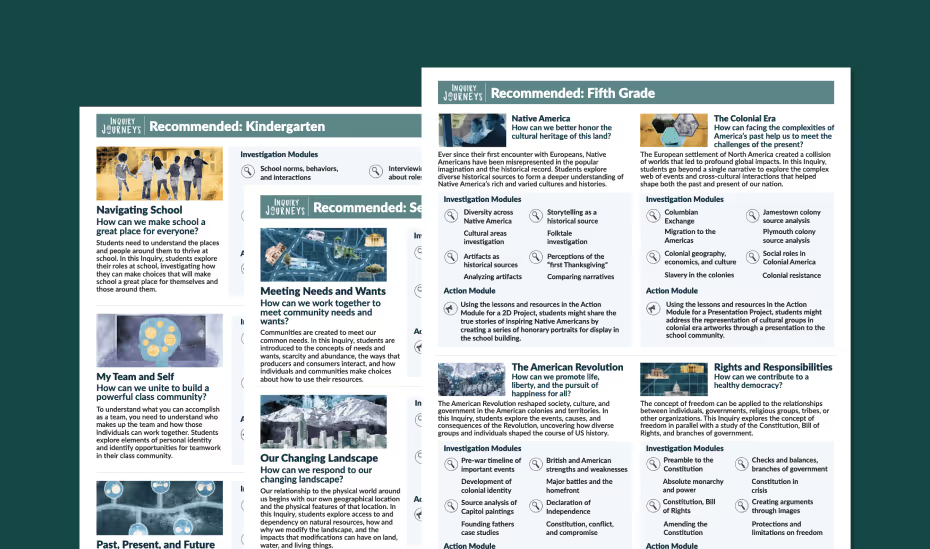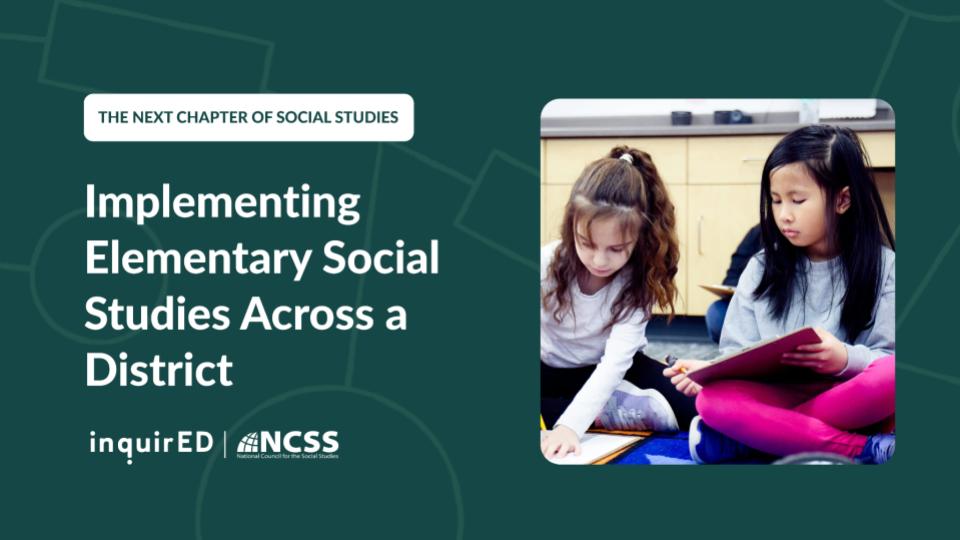
Check your inbox
Your resource is ready. You can download it now, and we also sent a copy to your inbox from learn@inquired.com.
Ready for more resources?
Whether you want some help with social studies adoption planning or you want to learn more about how inquirED approaches K-5 Social Studies, we have tools for you!



Scope and Sequence
See how inquiry-based social studies unfolds across grades K–5. Built for district leaders, it highlights:
- Thematic units anchored in compelling questions
- Integration of literacy, civic engagement, and disciplinary thinking
- Clear progression of content and skills aligned to standards
- Action Modules that turn learning into real-world application
It’s a strategic tool for planning, pacing, and making the case for inquiry across your elementary classrooms.
Social Studies Curriculum Review Guide
Download this free tool designed to help educators, districts, and curriculum developers create, evaluate, and select social studies instructional materials that meet the demands of today’s classrooms.

Download now

What's inside
Run your social studies adoption process with confidence
Trusted by districts and state leaders nationwide, inquirED’s updated Social Studies Curriculum Review Guide is here. Discover new tools for evaluating materials, now with expanded focus on knowledge building, literacy integration, and teacher usability. Download your free copy today.
What's Inside?
The Social Studies Curriculum Review Guide is designed to help you bring clarity and confidence to your curriculum review and adoption process.
- Depth of Knowledge and Skills: Does the curriculum build disciplinary understanding and thinking skills in history, geography, civics, and economics?
- Structured and Coherent Inquiry Design: Does the curriculum guide students through sequenced inquiry-driven learning to build transferable knowledge?
- Balanced Representation and Multiple Perspectives: Does the curriculum accurately represent multiple voices to build understanding and critical thinking?
- Literacy Development: Does the curriculum develop reading, writing, speaking, and listening within social studies to build disciplinary literacy?
- Usability and Educator Support: Does the curriculum offer structured materials and embedded professional learning for implementation?






